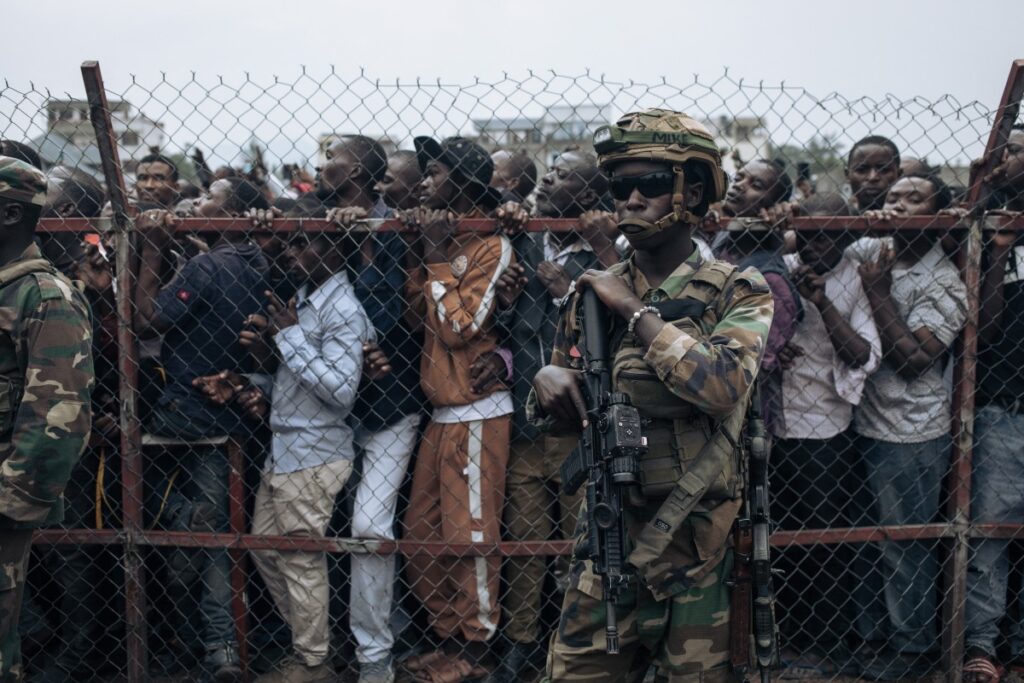The African Union (AU) warned on Sunday against the break-up of the Democratic Republic of Congo, two days after the Rwandan-backed M23 armed group entered a second city in the country’s east.
“We don’t want a balkanisation of eastern DRC,” the AU’s Peace and Security Commissioner Bankole Adeoye told reporters.
Without mentioning Rwanda, he added: “We are calling for the immediate removal of M23 and their supporters from all towns and cities including Goma airport.”
Meanwhile, Columns of M23 fighters allied with Rwandan troops on Sunday entered the centre of another key city in eastern Democratic Republic of Congo as the AU highlighted growing fears that the strife-torn country could break up.
The fighters reached outlying districts of Bukavu, capital of South Kivu province, on Friday.
The fall of the city of one million people, which was barely defended by the Congolese armed forces (FARDC), gives the M23 total control of Lake Kivu, following its capture of Goma, capital of neighbouring North Kivu province, at the end of January.
Growing international calls have been made for Rwanda to end its military backing for M23. It denies that its troops are in the DRC.
As they entered Bukavu, M23 fighters were applauded by some residents on the streets or huddled on balconies, AFP journalists noted.
Near the border post linking the town with neighbouring Rwanda, some chanted: “You’re the ones we’ve been waiting for, we need change in this country, we want work.”
“We have welcomed our liberators, it’s an immense joy that floods my heart,” said Kigohwa Kalimbasha, a Bukavu resident.
Some called on the troops to march on Kinshasa, the country’s capital.
The Congolese armed forces who abandoned Bukavu on Friday left behind weapons that were collected by civilians and bandits.
There was extensive looting across the weekend and most residents took refuge in their homes for safety.
Men, women and children, some of whom picked up weapons left by the retreating army, stormed several parts of the city.
In a statement, the DRC government said it was following developments in Bukavu “hour-by-hour” and accused Rwanda of “plans of occupation, of pillages” in the east.
With fears that the offensive could ignite a regional war, the international community has multiplied calls for a de-escalation and ceasefire, so far in vain.
UN chief Antonio Guterres, speaking on Saturday at the opening of the AU summit, demanded that the DRC’s “territorial integrity” be respected and a regional war avoided.
The French foreign ministry called for an immediate withdrawal of Rwandan troops, while Britain on Sunday warned that the Rwandan-backed offensive risked sparking “a wider regional conflict”.



